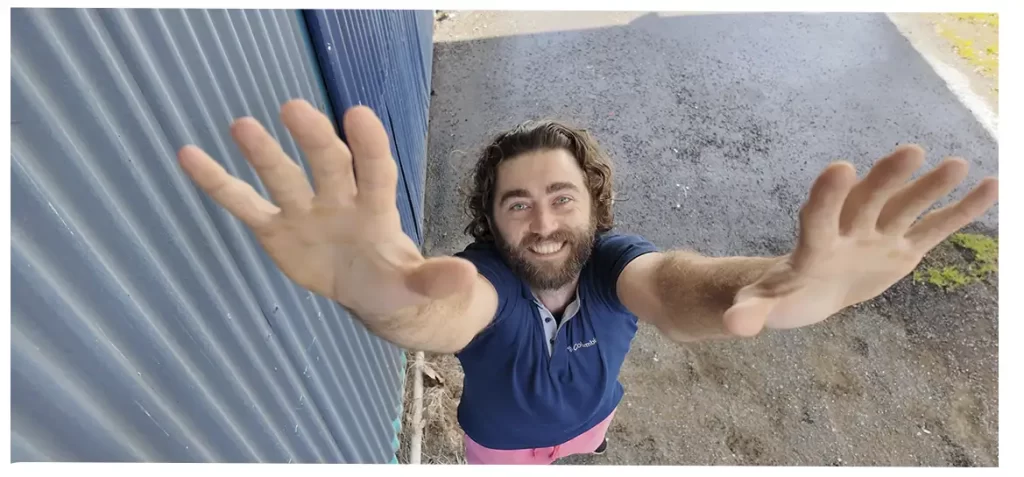
Language Learning Made Simple
Whether you’re a first-time language learner or an experienced polyglot, the language learning process always comes with its own unique challenges. Luckily, you can apply some excellent language-learning tips and strategies to make the journey a little easier.
1. Accept the challenges that come with learning a new language
Nobody becomes fluent in a new language overnight, and it is so common to see language learners get frustrated because they haven’t got this right or that perfect, or because things are taking longer than expected.

Learning a new language means making mistakes, forgetting and relearning things, mixing words up, and so on.
The reality is that learning to speak a new reo (language) will take as long as it’s going to take, so just keep at it each day. A mate told me once that “the only way to eat an elephant is one piece at a time.”
2. Be conscious of what motivates you
Being aware of what drives you is a valuable tool for achieving any goal in life, and it applies to language learning too.
At some point during the language learning process, your enthusiasm and energy levels will drop, and you might lose interest, albeit temporarily, so remember why you chose to learn the language. Go back to what inspired you and see if you can reignite that spark.
Knowing what motivates you helps to keep you on track towards the overarching goal. What motivates us changes over time as well, so if you’ve completely lost the spark to learn, don’t quit. You can find a new motivator instead.
3. Your environment is more important than a study book
It’s common to believe that knowledge comes from studying books. While reading skills are essential (especially if your target language has a different writing system), bookwork doesn’t stimulate the areas of the brain responsible for speech production and listening comprehension.

You need to spend as much time with the actual living language as possible, not with books about it. Where possible, surround yourself with speakers of your target language, even if you can’t speak it yet. Your ears will adjust to the different speech patterns, and you will hear the language in context, learning real-world uses that are much easier to remember.
Grammar books are great for learning the basic grammar, but it’s essential that learners graduate to immersion and speaking quickly. This fast-tracks learning progress and reduces the number of errors second-language speakers hold onto.
4. Make it personal
Use your newly learned language at the end of each day (or anytime during the day!) to say something funny, creative, expressive, or personal. Relating language to yourself in a personal, honest, and fun way will help you attach meaning and emotion to the words, cementing them in your mind faster.
5. Build specific vocabulary lists targeting what YOU want
Practice this step after learning some of the language’s basics to ensure you get all the vital things first. Once you have acquired some of the most commonly used nouns, adjectives, verbs, etc. (or whichever word classes that exist in the language), try writing a list of 100 words YOU want to learn. Think of your hobbies, preferred professions, favourite animals, foods, music, and more.

One way to approach this is to convert your life, activities, and daily routines into your target language. Once you have learned your list, move on to using these words in phrases and real-life contexts to make the language a part of your everyday experience. This step requires a conscious effort, but once the routine is formed you won’t be able to help yourself.
6. Don’t expect an app to be all that you need
Apps are great because you can take them anywhere and practise anytime. However, just like learning from a textbook, you need face-to-face speaking experience to really stimulate the production and reception areas of the brain. So, apps and textbooks are great for basic grammar and structural stuff but always need to accompany speaking and learning in person.
In summary, language learning can be challenging, but it is challenging for all of us. All it takes is a bit every day, chipping away at it. Find what motivates you, bring your language into your daily life, and see if you can join a community of like-minded learners or speakers of the language.
Read or listen to Matt’s Language Series on Coromind here.
Words by Matt Bowden

Coromind: Coromandel’s Collaborative Magazine

Help us take Coromind Magazine to new heights by becoming a member. Click here
Change the Weather for Your Business: Advertise with Us.
Advertise your business in the whole Hauraki Coromandel in the coolest Coromandel Art Magazine, from Waihi Beach/Paeroa /Thames up to the Great Barrier Island.
Advertise Smarter, Not Harder: Get in Touch






